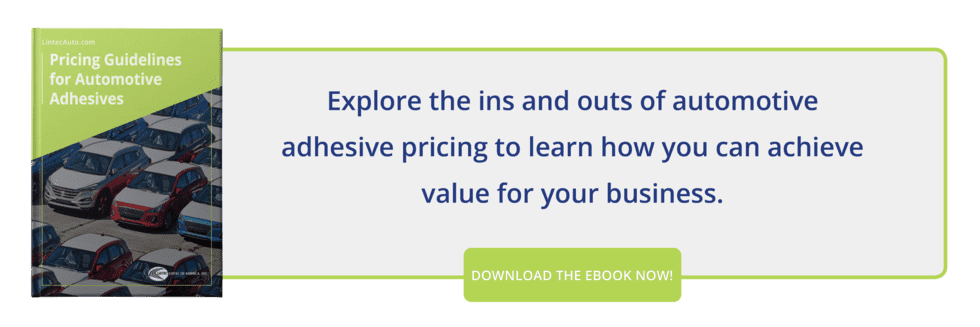Avoid These 4 Common Mistakes When Purchasing Vehicle Labels

Purchasing labels for automotive use is much more complicated than something like box labels. Vehicle labels must meet stringent durability criteria and feature resistances for all manner of environmental and chemical threats. Make sure you cover your bases when looking to purchase vehicle labels by avoiding these common mistakes:
1. Not matching the adhesive to the substrate.
Vehicle labels for metal surfaces don’t actually use the same style of adhesives as those for plastic surfaces. It’s critical that you match the adhesive layer to the qualities and needs of the substrate.
Many of the materials used in modern automotive manufacturing have low surface energy (LSE), which prevents adhesives from achieving strong “wet out” and forming durable bonds. This includes plastic or composite materials made with:
- Polyethylene
- Polypropylene
- PTFE Fluoropolymer (Teflon)
- Acrylic
- PVC
- And other thermoplastics
It can also include other substrates painted with a “powder coat” or that have rough, textured surfaces. To make matters worse, many thermoplastics will “out-gas” and potentially create bubbles beneath the adhesive over time (or worse—cause the vehicle label to peel away and release).
To cope with these surfaces, your vehicle label can utilize aggressive, tackified adhesives or backings with cellular polymers that allow out-gasses to pass through.
2. Choosing substandard backing materials for hot areas.
Some areas of the vehicle will be exposed to extreme heat or drastic temperature fluctuations, which can damage the backing (core) of the vehicle label in several ways:
- Weakening (or release) of the adhesive layer
- Discoloration or fading of the printed backing material
- Cloudiness or darkening of clear laminates over your vehicle label
- Stress on stretched bonds (differing thermal expansion traits between the label and the surface)
VECI labels, for example, are often found on the underside of the hood (in the hot engine bay). Certain models even place these critical vehicle labels on radiator shrouds or valve covers. Adhesives in these areas need to be rated for boiling temperatures. We recommend heat-tolerant polymers like vinyl, polyester, and heat-stabilized PVC for the vehicle label ribbon. Utilize a high-performance industrial acrylic that’s rated for wide temperatures (in some cases from -40 °F up to 300 °F or more).
3. Failing to name a target price (purchasing with a blind quote).
If you set the target price for your automotive label supplier ahead of time, they’ll have more ability to customize their product to suit your needs. A target price helps the supplier make more targeted use of its product portfolio. The vehicle label may have a flexible price point, dependant on traits such as:
- Thickness
- Adhesive layer
- Resistances
- Alternative (similar) formulations
These criteria can be adjusted to approach your target price and match the specs to your budget needs.
4. Minimal research into the label supplier’s reputation.
Regardless of the product, any supplier with a poor reputation for quality, trust, and customer service will create hidden costs and headaches. Make sure to investigate the supplier’s market reputation before engaging in discussions about a purchase. Do they have online reviews? Do you have contacts who have used them in the past? Social proof of exceptional service will give you peace of mind with your purchase.
Also, you might like what you hear about their vehicle labels in the initial quote, but it helps to look into their product yourself. Visit the factory floor, explore testimonials or reviews, audit their manufacturing process, or test product samples in-house to do your due diligence before committing to a long-term contract.
Make your purchase carefully. Consult with the label supplier first.
LINTEC Automotive is happy to consult with you on your vehicle label needs before any purchasing negotiations. Our expert team can discuss your specifications and identify a labeling solution from our broad portfolio that will meet precise physical and budget criteria. LINTEC Automotive is happy to consult with!


